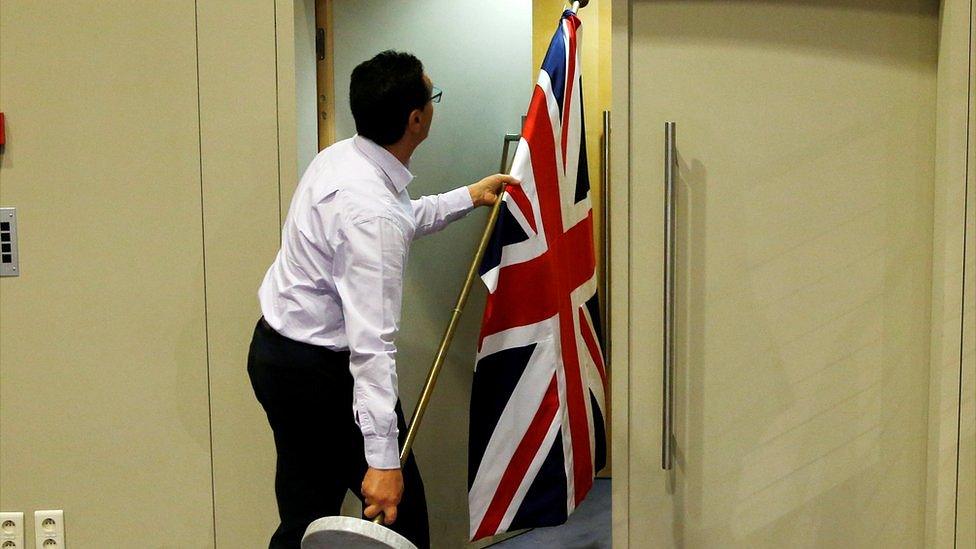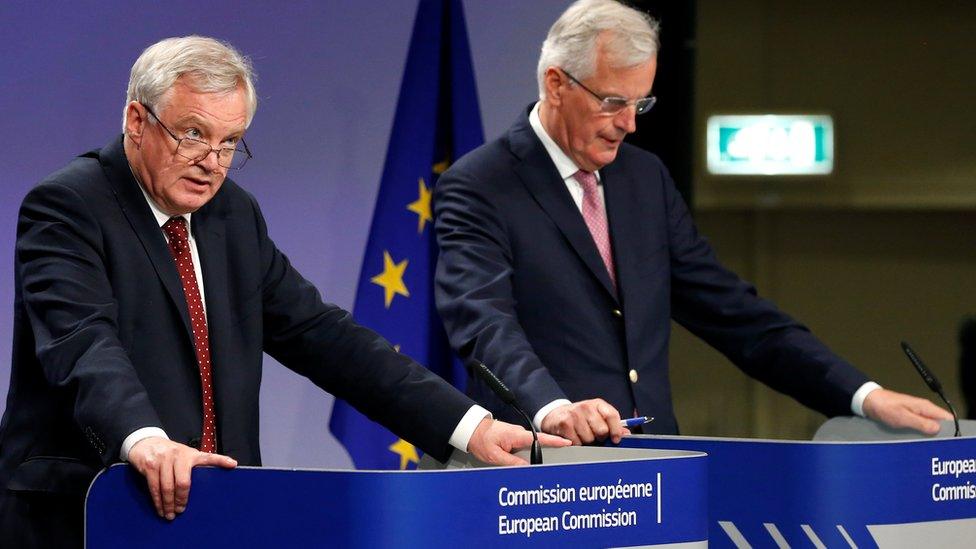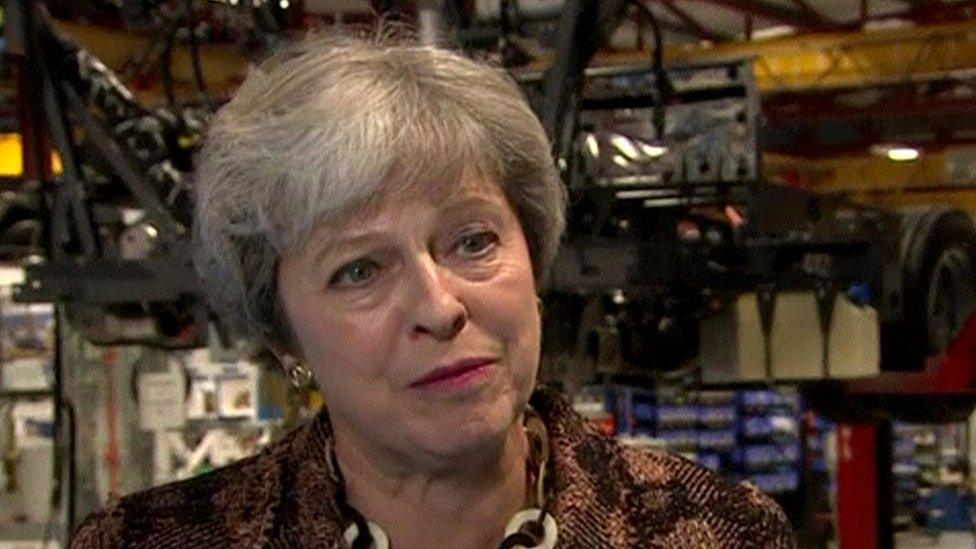Brexit: Money and other disputes dog EU-UK talks
- Published

Can the many thorny Brexit issues be resolved by the March 2019 deadline?
Before the Brexit talks and politicians' soundbites come the off-the-record briefings. So, after more work to map out the UK's exit from the EU, how will the third round of talks go?
Not well, say both sides, cautioning against any big breakthroughs at the session starting on Monday.
EU officials speak of a "big gap", unlikely to be closed any time soon. The UK predicts highly technical talks, with progress coming in later sessions.
The British want to broaden the discussion to include a possible post-Brexit relationship, while the EU's chief negotiator Michel Barnier wants the focus to remain on his priority issues: citizens' rights, the UK's financial obligations and the Irish border.
On the first, EU officials insist that the European Court of Justice is the only way to protect and enforce the rights of EU citizens living in the UK after Brexit. The British say no other country would accept a foreign court having such a role.
There could be progress on less controversial elements, such as social security and the recognition of professional qualifications.
May says UK leaving EU court jurisdiction - BBC News
Italian doctor given month to leave UK
Brexit: What is at stake in EU-UK talks?
The UK accuses Mr Barnier of "massively over-egging" his demands for money. That view is shared in private by at least one other member state.
A British legal analysis of the so-called Brexit bill will be on the table at the talks, along with a discussion about the UK's share in the European Investment Bank.
Why the fuss about the European Court of Justice?
The EU has welcomed the UK's acceptance that it has financial obligations - but wants details of what the UK is, and is not, willing to pay for.
The Irish border is becoming emotive. A senior EU source described the UK position paper on the subject as "magical thinking" and cautioned against the peace process being used as "a bargaining chip".

The chief negotiators: UK Brexit Secretary David Davis (L) and the EU's Michel Barnier
There is the potential for agreement in some highly technical areas, such as legal co-operation and the transfer of nuclear material.
A British distraction?
British civil servants are proud of the flurry of papers they have produced on the future relationship between the UK and EU, in areas such as customs.
Diplomats from the 27 other member states have read them with interest, but describe them as aspirations, not detailed policy proposals.
However, EU negotiators have interpreted the documents as an attempt to subvert the EU's timetable. The EU aims to settle withdrawal-related issues before discussing co-operation on trade and security.
"There are sensitive political issues that need to be dealt with early, so as not to leave them open at the end, because that increases the risk of failure rather than managing it," warned one EU official.
And while there are frequent reminders that the clock is ticking, another EU source said: "We have not encountered a situation where lack of time prevents us from advancing, it's been a lack of substance."
Events in the UK are also being noticed. The letters threatening EU nationals with deportation sent in error by the Home Office have been discussed in Brussels, with hints that it calls into question the UK's ability to handle the technicalities of Brexit.
- Published23 August 2017
